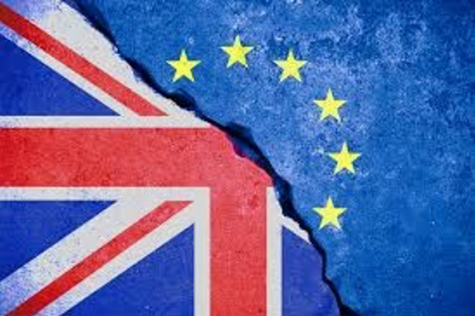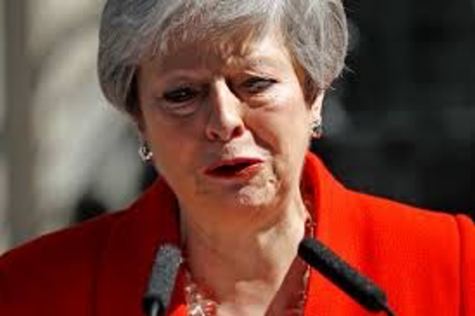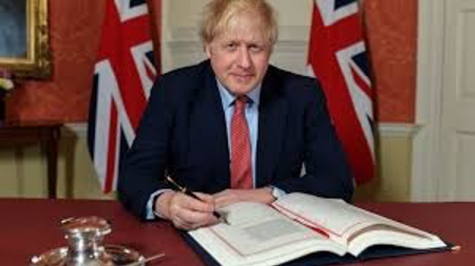Brexit: What you need to know
March 9, 2020
Over the course of the past three years, a controversy has been occurring across the world that many of us know little about. That controversy is Britain’s exit from the European Union, more commonly known as “Brexit”. In order to be a member of the European Union, countries must pay dues, which keep trade and immigration borders open between the member countries. The United Kingdom (Britain) felt as though the amount that it was contributing to the EU exceeded the benefits it was receiving, and for that reason, it decided to leave the EU. This might seem like a simple declaration that can be accomplished easily, however, it immediately sparked a lot of drama and tension, both between the EU and the UK as well as between different groups within the UK.
Britain’s divide with the EU, as represented through their respective flags, courtesy of Google Images
In June 2016, a referendum (a public vote) was held to see whether or not Brexit would happen, and 52% of UK voters voted to leave the EU. This means that 48% of voters voted to stay, which is a significant group. On March 29, 2017, Prime Minister Theresa May formally announced that Brexit would happen in two years, on March 29, 2019. This did not happen due to various delays over the course of the next two years. The date was first pushed back to October 21, 2019, by request of Theresa May. Over the summer, Theresa May resigned and Boris Johnson was elected Prime Minister. When October came, his new deal wasn’t quite ready yet so the date was pushed back even further to January 31, 2020. This would be the final extension. The UK finally left the EU on January 31, 2020, through the European Union Withdrawal Agreement Act.
Theresa May broke down in tears while delivering her resignation address, courtesy of Google Images
Although many Brits support and voted for Brexit, many are also angered and frustrated by the change. This means that UK citizens can no longer live in European countries such as Germany, France, Italy, Switzerland, etc. without having a work visa or applying for a residency. The same goes for European citizens who would like to live in the United Kingdom at some point. PM Boris Johnson is still in negotiations to determine the final Brexit agreement and the transition period is still looming, however, for now, that is everything you need to know about Brexit!
Pictured is Boris Johnson signing the EU Withdrawal Agreement Act, courtesy of Google Images















